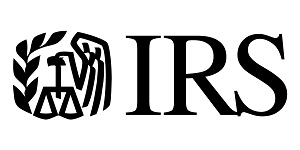Court Won't Let Government Screw Forfeiture Victim Out of Legal Feesby Tim CushingTechdirt Feb. 15, 2016 |
Popular 
Zionist GOP Megadonor Paul Singer Stands to Make Billions Off Venezuela Regime Change Op

Tikvah Fund, After Securing $10.4M Grant From Trump Admin, Pushes for Censorship to Advance Zionism

Trump's Israeli-Born Pick for U.S. Anti-Semitism Czar Plans to Work With Social Media to Suppress 'Hatred'

Trump Bombs Venezuela, Captures Maduro, Says U.S. 'Will Run' Country

How I Broke 300M Views on X in 2025
  The government has made one last attempt to screw over a victim of an IRS bank account seizure. The screwing began in December of 2014, when the IRS -- despite stating it would not perform forfeitures if there was no clear evidence of wrongdoing -- lifted $107,000 from convenience store owner Lyndon McLellan. This was yet another one of the IRS's "structuring" cases, predicated solely on the fact that multiple deposits under $10,000 were made. ($10,000 triggers automatic reporting to the federal government.) The government has made one last attempt to screw over a victim of an IRS bank account seizure. The screwing began in December of 2014, when the IRS -- despite stating it would not perform forfeitures if there was no clear evidence of wrongdoing -- lifted $107,000 from convenience store owner Lyndon McLellan. This was yet another one of the IRS's "structuring" cases, predicated solely on the fact that multiple deposits under $10,000 were made. ($10,000 triggers automatic reporting to the federal government.)After the IRS announced it would not be pursuing questionable structuring seizures -- thanks mainly to several rounds of negative press -- it still continued to pursue McLellan's case, despite IRS Commissioner John Koskinen telling a Congressional subcommittee that this was exactly the sort of case the IRS would no longer be pursuing. The prosecutor in charge of McLellan's case was less than enthused about the public discussion of the McLellan "investigation." He claimed the public discussion only made IRS investigators angrier and more likely to act vindictively (I'm paraphrasing) and claimed the "final offer" would only be 50% of the seized funds. The "final offer" turned out not to be all that "final." The IRS eventually dropped the case and returned all $107,000 to McLellan. However, it did not feel McLellan was entitled to compensation for legal fees because he did not "substantially prevail" in his case against the IRS seizure. The government's argument against the awarding of fees was basically nothing more than it illustrating how easy it is for it to rig the game. All it takes is a more sympathetic -- or less attentive -- judge. The government tried to dismiss the case without prejudice, knowing that caselaw would side with it on the denial of fees. Under CAFRA (Civil Asset Forfeiture Reform Act), a claimant can recover his reasonable attorney fees and litigation costs only if he has "substantially prevailed" in a civil forfeiture proceeding. 28 U.S.C. § 2465(b)(1 ). A number of courts have held that a claimant has not substantially prevailed where the forfeiture proceeding was voluntarily dismissed without prejudice.The government argued in its brief that the case should only be dismissed without prejudice, raising several of its own claims as apparent legal strawmen, but refusing to address the solitary argument raised by McLellan -- that dismissal without prejudice would preclude him from seeking legal fees. The court, fortunately, repays the government's refusal to address McClellan's sole argument by refusing to entertain its unrelated defense of its "dismissed without prejudice" strategy. Certainly, the damage inflicted upon an innocent person or business is immense when, although it has done nothing wrong, its money and property are seized. Congress, acknowledging the harsh realities of civil forfeiture practice, sought to lessen the blow to innocent citizens who have had their property stripped from them by the Government. Through CAFRA, Congress provided for relief in such cases. This court will not discard lightly the right of a citizen to seek the relief Congress has afforded...Last-minute screwing averted. McLellan has a chance to recover $22,000 in legal fees along with any interest accrued on the $107,000 while in the government's possession. The Institute of Justice, which took on McLellan's case, is hoping this decision will aid them in its battle to recover fees from another questionable IRS seizure. The Institute Justice is seeking CAFRA compensation in a similar structuring case involving Carole Hinders, an Iowa restaurant owner who got her money back after I.J. took up her cause. The U.S. Court of Appeals for the 8th Circuit will hear oral argument in that case next Tuesday. "The government cannot turn a citizen's life upside down and then walk away as if nothing happened," says Wesley Hottot, an I.J. attorney who is representing Hinders. "Now that Lyndon has been vindicated, we look forward to holding the government to account in Carole's case as well."Hinders' interest recovery should certainly be larger, if not the legal fees themselves. All told, the IRS seized $315,000 from the owner of a small, cash-only restaurant -- again, based on nothing more than sub-$10,000 deposits that traced back to a wholly legal enterprise. |



